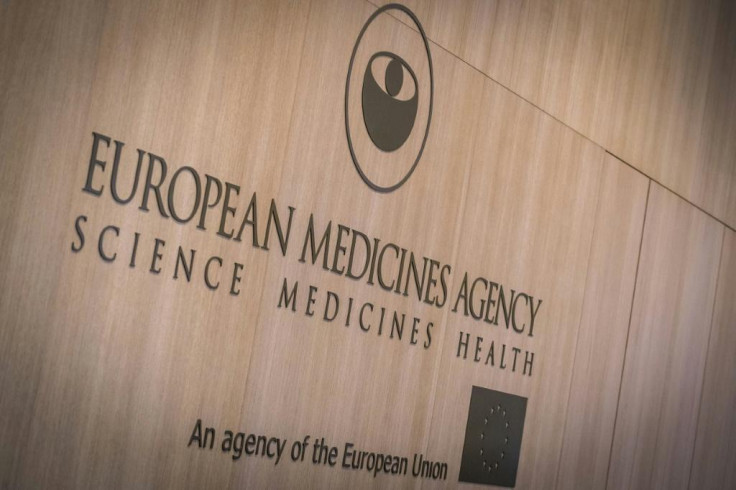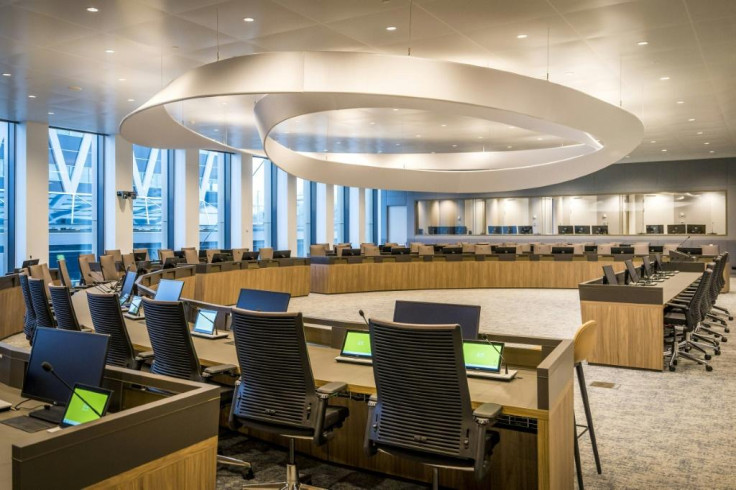Dutch flaunt Brexit booty with European Medicines Agency opening
The 300-million-euro ($330 million) building was built in less than two years after Amsterdam won an EU-wide contest to host the agency.
The Netherlands showed off the spoils of Brexit on Friday as it officially handed over the European Medicines Agency's new building in Amsterdam after the regulator was forced to move from London.
The 300-million-euro ($330 million) building -- which boasts features including a 16-storey high wall of 54,000 plants and a rooftop bar -- was built in less than two years after Amsterdam won an EU-wide contest to host the agency.
It will now be home to more than 700 staff who have had to make the "painful" move to the Netherlands from London along with their families, following Britain's shock vote to leave the European Union.

"Of course we are happy with the fact that the EMA is now based in Amsterdam, it's one of the outcomes of the whole Brexit decision," Medical Care and Sport Minister Bruno Bruins told AFP.
"This all for the economy of the Netherlands is very fruitful."
Dutch officials say around 100 international companies have moved to the Netherlands so far because of Brexit while more than 300 others have expressed an interest.
"The EMA building moving to Amsterdam will be kind of a magnet because so many other institutions, so many other companies are willing to work together with the EMA," said Bruins.

The EMA -- which regulates all medicines for humans and animals across the EU -- moved to a stop-gap building in Amsterdam in January while it waited for the new base to be completed.
That provoked protests -- and legal action -- from Italy, whose northern city of Milan lost out to Amsterdam in a tense tie-break to host the agency in November 2017.
Bruins however insisted the Dutch had "delivered our promise", building the HQ from scratch in just a year and a half.

EMA chief Guido Rasi admitted having to leave London had been hard on staff, but said the new building was "even nicer" than their old HQ.
"The move was painful. It was painful because it was a choice to move to London, and this was out of the blue, you have to go to somewhere else," Rasi told AFP.
"So they had to find jobs for spouses, schools... a different way of shopping, different way of moving, different friends, relatives, everything."
Housing has also been an issue, with Amsterdam being notoriously expensive for property rental.
One of the feared major downsides of Brexit -- a possible shortage of medicines on both sides of the Channel -- was now hopefully off the cards, the EMA boss added.
"As a result of Brexit, we probably can avoid (shortages), we are confident," he said.
Staff expecting offices next to one of Amsterdam's famous canals may meanwhile be disappointed as the new EMA building sits in a windswept business district on the outskirts of the capital.
The building's architect, Fokke van Dijk, said the idea of the giant green wall was, in addition to being environmentally friendly, to provide a relaxing environment for staff.
While the Netherlands often rates highly in international surveys for quality of life for its clean cities and bike-based transport, some things may take a little time to acclimatise to, minister Bruins admitted.
"I hope they will get used also to the Dutch weather, the Dutch herring, the Dutch salt licorice," he said as he offered a hesitant-looking EMA chief one of the chewy black sweets.
"It's quite good here."
Copyright AFP. All rights reserved.
This article is copyrighted by International Business Times, the business news leader





















